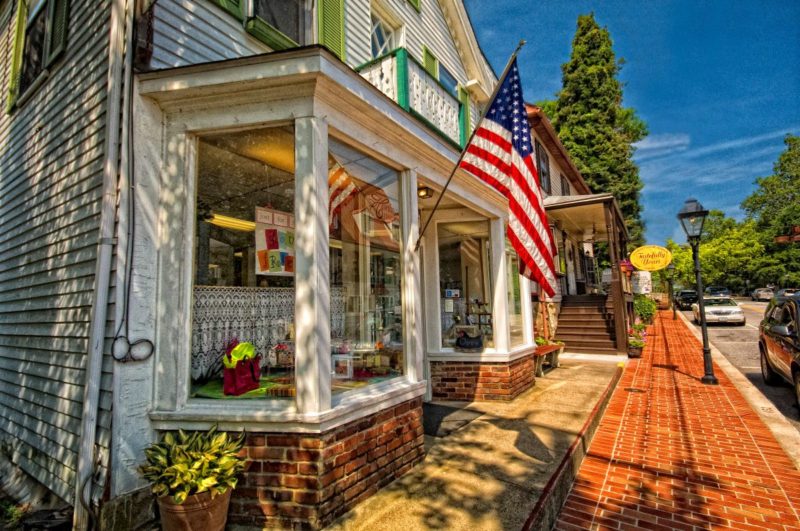Occoquan is a small city in a suburban area near Washington, D.C. It provides a refreshing experience of small-town life. Established in 1734, Occoquan has a rich history of over 300 years. Despite facing a devastating fire in 1916, some original structures from the 18th and 19th Centuries have stood the test of time, highlighting the town’s resilience.
The Rockledge Mansion, a testament to Occoquan’s endurance, was built in 1757 and now serves as a venue for special events, weddings, and community meetings. The Mill House, a living relic from 1788, is home to the Occoquan Historical Society’s Museum, preserving the town’s past. The Hammill Hotel, reborn as Lil’ Bit of Posh, a women’s accessory and jewelry store, beautifully blends the old with the new, a symbol of Occoquan’s ability to adapt. In addition to these historical landmarks, Occoquan hosts a variety of community events throughout the year, such as the Occoquan Arts and Crafts Show, the Occoquan Spring Craft Show, and the Occoquan Fall Craft Show, which bring residents and visitors together in celebration of local talent and creativity.
Research suggests that happiness is not solely based on material success but also on seeking satisfaction through new experiences and a well-lived life. Small towns, with their unique offerings of simple everyday moments, a lower cost of living, more time, greater access to nature, vital community connections, and a focus on experiences over material possessions, might pique the interest of many.
While some may find leaving a big city for a small town unappealing, small-town life offers everything needed to lead a happy life. However, it is important to note that small towns may have limited job opportunities, fewer entertainment options, and a slower pace of life. The pursuit of happiness is preserved in small towns, but it is essential to consider these potential challenges before making a lifestyle change.
In his book “Happier,” Harvard lecturer Tal Ben-Shahar describes the “arrival fallacy” as the false belief that reaching a valued destination can sustain happiness. While ambition is not a bad thing, finding balance is essential. And sometimes you have to slow down to find it, and a small town just seems to slow everything down.
Scientific research, including studies by psychologists and sociologists, underscores the importance of seeking satisfaction from new and novel experiences, rather than relying on outward signs of success for happiness. For example, a study published in the Journal of Positive Psychology found that people who regularly engage in new experiences report higher levels of happiness. Small towns with their unique offerings and close-knit communities, are ideal environments for fostering these experiences. They teach us to appreciate the simple joys of life and to find happiness in everyday life.
Despite the surge in real estate prices during COVID-19, the cost of living in most small towns is still significantly lower than that of big cities. This affordability not only provides a sense of financial security but it allows for more appreciation of natural wonders, fostering a deep sense of contentment and well-being.
Small-town living is increasingly popular among Americans due to its welcoming and family-friendly atmosphere. One of the defining features of small towns is that almost all residents are homeowners, fostering a strong sense of community and neighborly support. This close-knit environment provides a sense of security and makes it easier for everyone to form meaningful connections with their neighbors.
In addition to the communal spirit, small towns exude a timeless charm and a relaxed pace of life. This environment allows adults to enjoy a more laid-back lifestyle while also providing an idyllic setting for raising children. With a smaller population, small-town educational environments tend to be more intimate, increasing the likelihood of neighbors’ children attending the same schools and classes. This, in turn, strengthens the bonds between families and fosters a sense of togetherness within the community.
Contrary to expectations, forming genuine connections is often easier in a small town compared to a big city. The intimacy of a small town fosters a powerful sense of community, where meaningful relationships are not just a possibility, but a strong predictor of happiness, making everyone feel valued and included.





